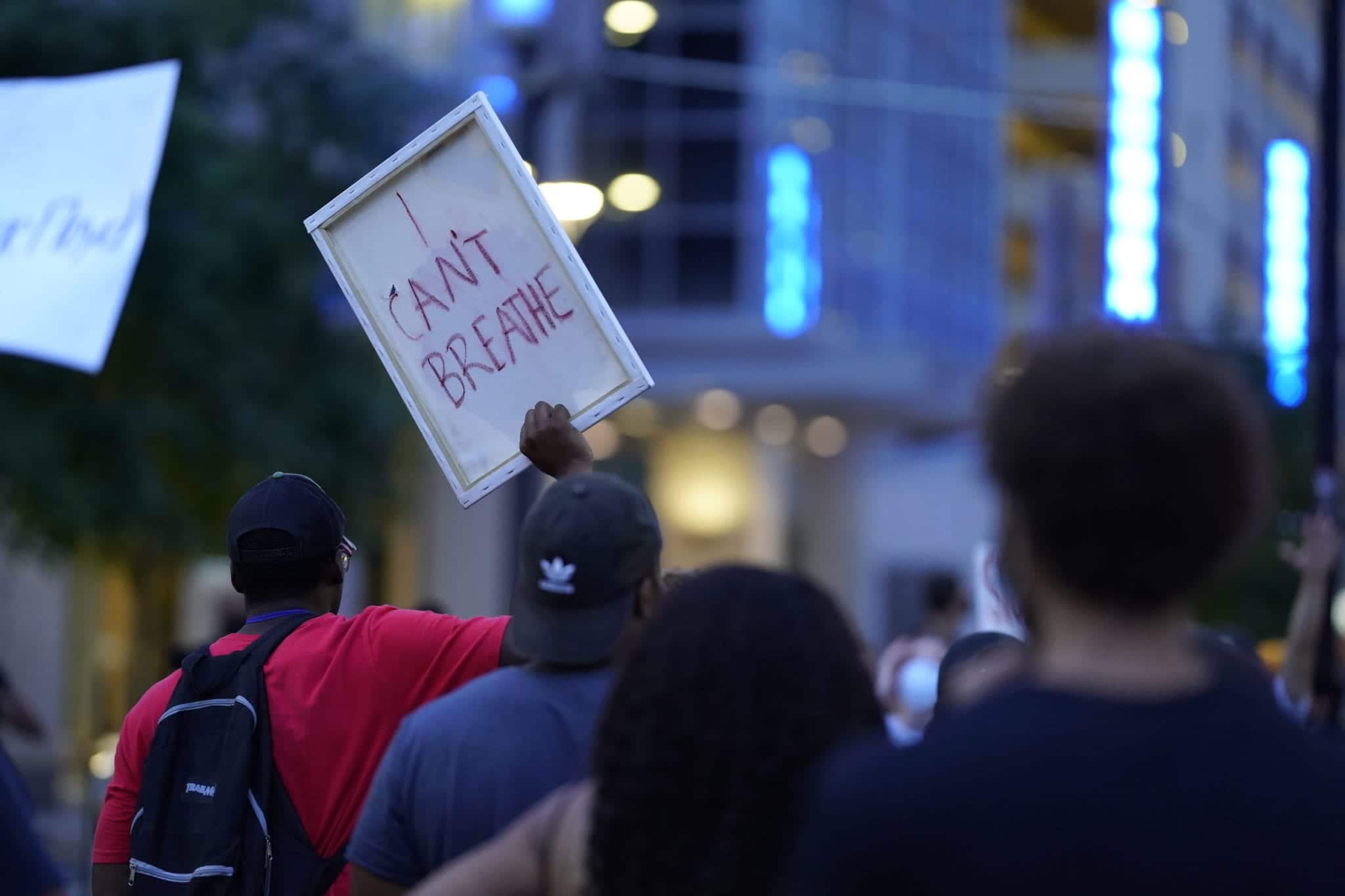In late May, Fort Worth erupted into demonstrations following the killing of George Floyd. When protests on May 31 became heated, several dozen protesters were arrested and at least 50 were hit with rioting charges.
In the weeks following the protests, Police Chief Ed Kraus announced that the rioting charges the protestors face would be dropped. However, far from being let off the hook, certain protestors may face more serious charges including assault, assault on a peace officer, and criminal mischief.
The Department alleges that while the majority of protestors were peaceful, some participants had caused damage to property and threatened the lives of officers. According to the police department, these protestors will be investigated and prosecuted to the full extent of the law.

Assault vs. Riot Charges
For protestors previously charged with riot charges, assault charges represent a more serious crime with more serious consequences. To understand the difference, let’s take a closer look at how Texas defines these different crimes:
Rioting
In Texas, rioting occurs when seven or more people gather and commit any of the following acts:
- Create immediate danger of damaging property or injuring someone
- Significantly obstruct law enforcement or other government functions or services
- Deprive another person of their legal right or prevent them from enjoying a legal right
The crime of rioting is a Class B misdemeanor. In our state, Class B misdemeanors are punishable by up to 180 days in county jail, and a fine of up to $2,000.
Assault
In Texas, an assault occurs when someone commits one of the following:
- Intentionally causes bodily harm to another person
- Intentionally threatens another person with bodily harm
- Intentionally causes physical contact that could be reasonably interpreted as offensive or provocative
The crime of assault is a Class A misdemeanor. In our state, Class A misdemeanors are punishable by up to a year in county jail, and a fine of up to $4,000.
Assault against a peace officer
For protestors facing charges of assault on a peace officer, things are even more serious. In Texas, assault committed against a peace officer who is performing their official duty or in retaliation for doing their official duty is considered a second-degree felony.
In our state, a second-degree felony is punishable by two to 20 years in prison and a fine of up to $10,000.
Rioting vs. Criminal Mischief Charges
What about protestors facing criminal mischief charges? In some circumstances, criminal mischief is considered more serious than rioting and penalized more harshly. The seriousness of a criminal mischief charge depends on how much property damage is allegedly involved.

In Texas, criminal mischief occurs when someone intentionally damages or vandalizes someone else’s property. The severity of how criminal mischief is penalized depends on the value of the property that was damaged:
- Damage under $100 is a Class C misdemeanor and punishable by a fine of up to $500.
- Damage between $100 and $750 is a Class B misdemeanor and punishable by up to 180 days in county jail and a fine of up to $2,000.
- Damage between $750 to $2500 is a Class A misdemeanor and punishable by up to one year in jail and a fine of up to $4,000.
- Damage between $2500 and $30,000 is a third-degree felony and punishable by up to two years in county jail and a fine of up to $10,000.
About the Author:
Brandon Fulgham has an in-depth understanding of both Texas law and Texans themselves. Before practicing law here, he received his undergraduate degree from TCU and his law degree from South Texas College of Law in Houston. After graduation, he worked in District Attorneys’ offices as a prosecutor, building cases designed to put people behind bars. Now, he uses that knowledge to protect the rights of people in and around Fort Worth. He has been recognized for his work by Expertise (Best Criminal Defense Lawyers in Forth Worth and Best DUI Lawyers in Fort Worth, both 2020), The National Trial Lawyers, Fort Worth Magazine, and others.